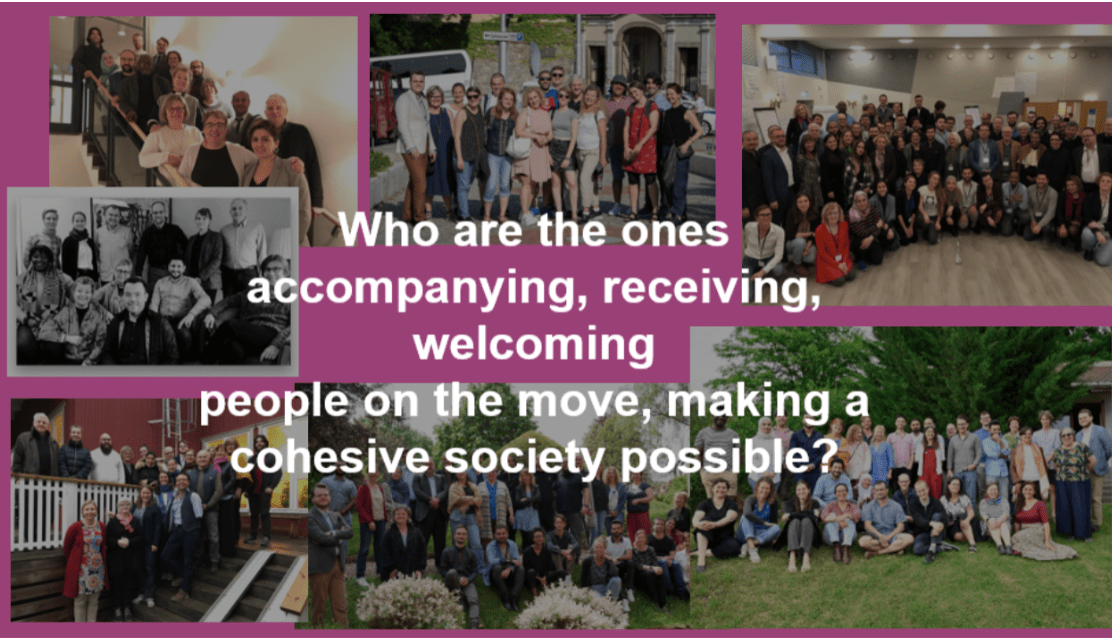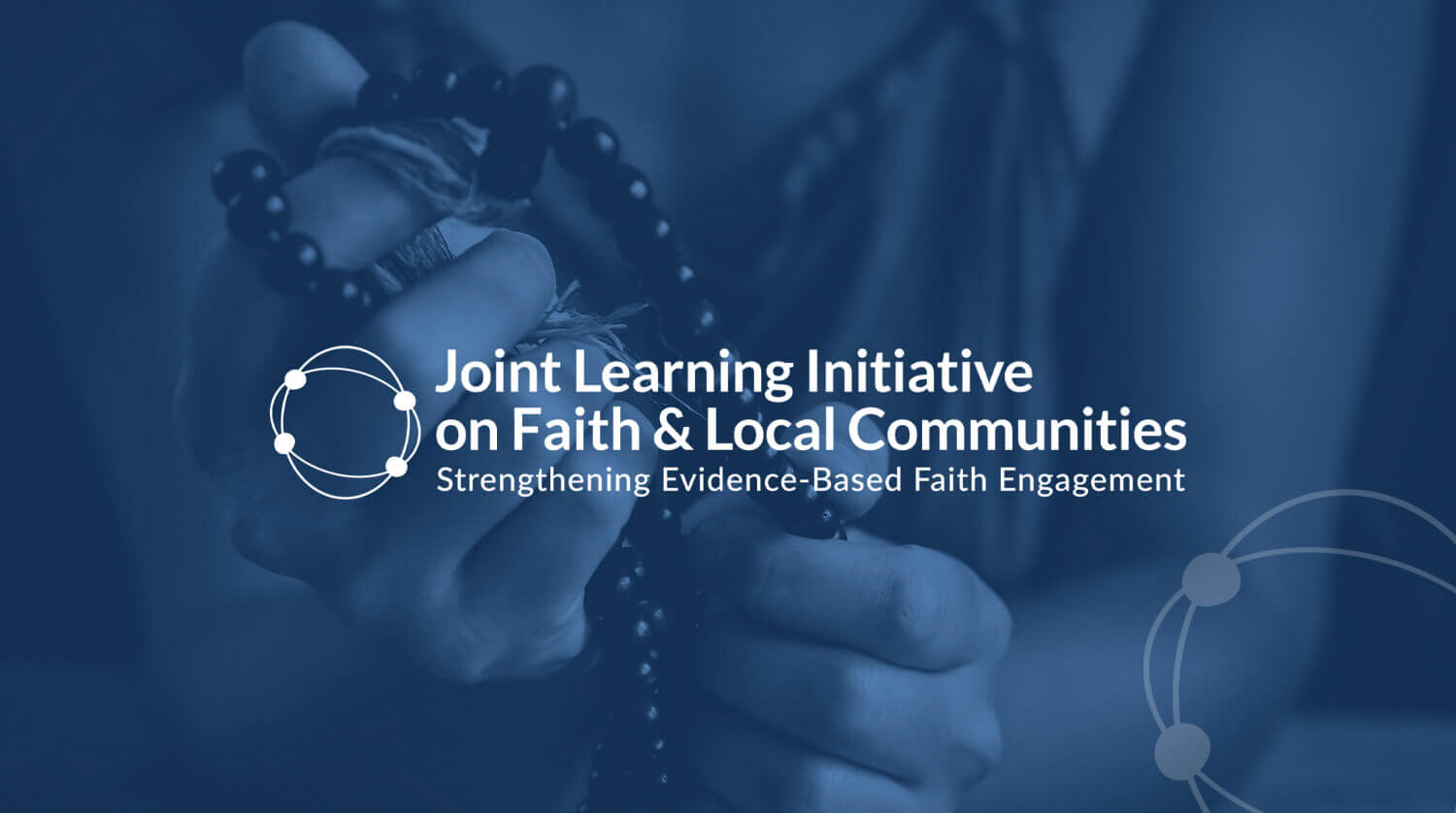The JLI Refugee and Forced Migration Hub ran a series of three roundtables between October and December this year, reflecting on key issues that intersect with religion, faith actors, refugees, and forced migration.
This followed JLI’s involvement as a learning partner in the Welcoming the Stranger conference, which took place on World Refugee Day in June 2022. The conference was an initiative collaboratively led by Islamic Relief Worldwide (IRW), Lutheran World Federation (LWF), and the Hebrew Immigrant Aid Society (HIAS).
One of the recommendations from the June 2022 Welcoming the Stranger conference was the need to “build more contextualised, practice-oriented evidence on faith actors’ roles in responding to forced migration”. On this basis, JLI worked with colleagues from Islamic Relief Worldwide and Leeds University to reconvene the JLI Refugee Hub, to explore issues of interest and concern on religions and forced migration.
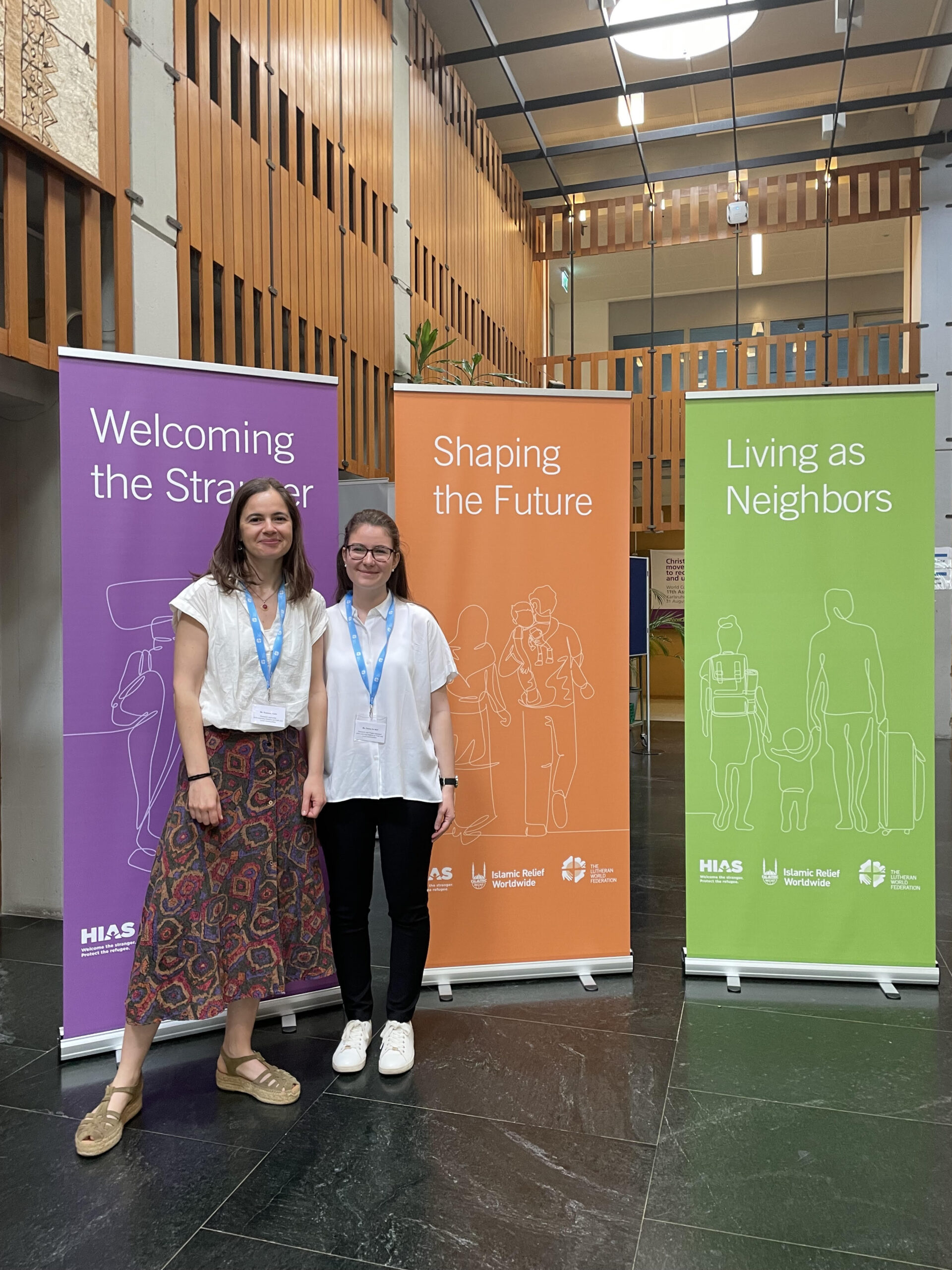
At a meeting of JLI Refugee Hub in June 2023, bringing together over 30 Hub members from around the world, participants expressed a shared desire to convene virtual spaces for sharing practice and learning on key issues. Between October and November 2023, JLI, together with colleagues from Islamic Relief Worldwide and Leeds University, convened a series of three roundtables focusing on the intersections between faith actors and religion with capacity sharing, mental health and psychosocial support, and social cohesion interventions for refugees and forced migrants. The sessions were closed-door, to enable open and honest sharing and discussion.
Each session opened with presentations by 3-5 Hub members, from different regions around the world, sharing their own research and practice, followed by a facilitated discussion where all participants were invited to share their experiences, practice, research, and challenges on religion and forced migration.
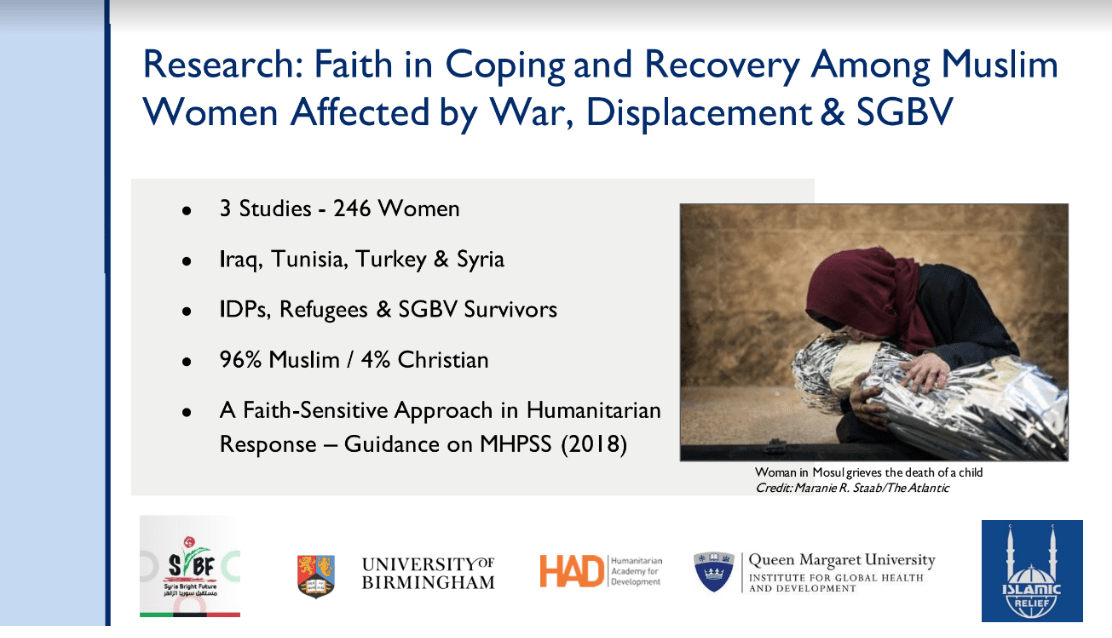
The first session, which took place on 5 October 2023, focused on capacity sharing. Loida Carriel (Tearfund) shared about the “As Born Among Us” network in Latin America and the Caribbean, which trains Christian leaders in the region to advocate for refugee rights; Dr Jennifer Eggert (JLI) spoke of JLI’s partnership with Syria Bright Future to build the capacity of Syrian MHPSS practitioners to engage in research; and Atallah FitzGibbon (IRW) outlined new plans by IRW, along with LWF and HIAS, to develop a series of capacity-building sessions for NGOs and faith actors working with refugees.
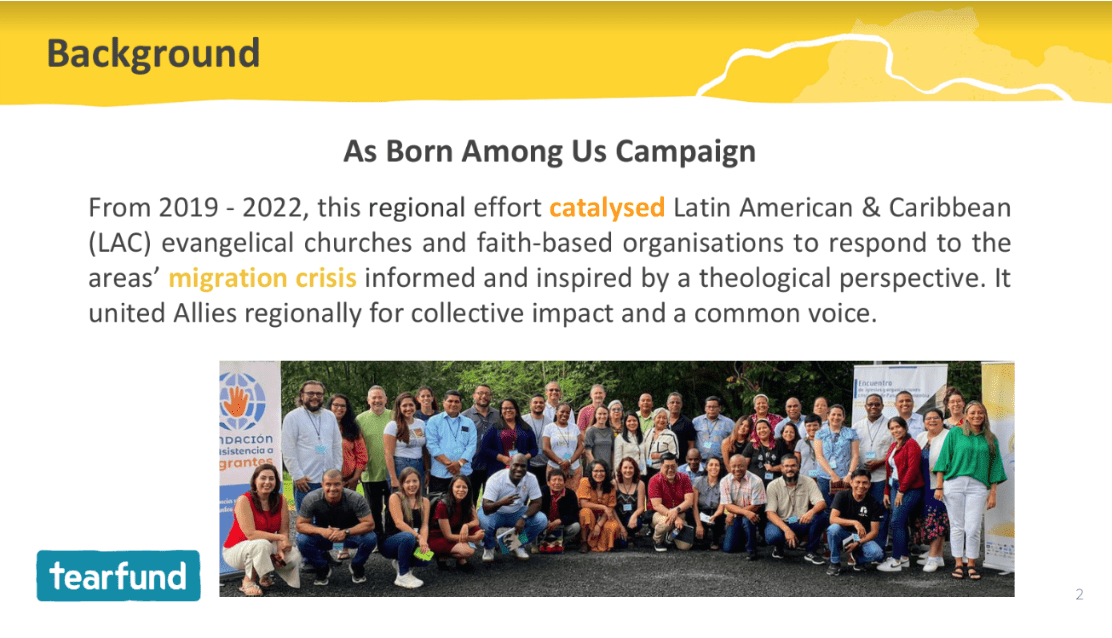
The second session, which took place on 25 October 2023, explored faith-sensitive approaches to mental health and psychosocial support. Matthew Schojan (HIAS) shared examples of HIAS’ work supporting MHPSS for refugees and forced migrants across Latin America; Dr Kathleen Rutledge (Queen Margaret University) shared research exploring the relationship between faith and mental health needs of displaced and violence-affected Muslim women in Iraq, Tunisia, Syria and Turkey; Dr Mohammed Abo Hilal (Syria Bright Future) spoke of SBF’s practice and research on culturally-sensitive and faith-sensitive MHPSS; and Youstina Mikhail (Ibrahimia Media Centre) spoke of MHPSS support provided by IMC to Syrian refugee children in Egypt.
The final and third session, held on 6 December 2023, explored the role of faith actors in social cohesion initiatives for forced migrants. Emmanuel Wakana (YELI Burundi) spoke of the importance of supporting political participation for displaced women as a means of promoting social cohesion; Watfa Najdi (American University of Beirut) shared research on the impact of secular-based approaches to social cohesion in faith-identifying communities; Rikko Voorberg (A World of Neighbours) spoke of his experience building an interfaith network of practitioners working to support social cohesion for refugees in Europe; Esperande Bigirimana (Faith to Action Network) shared her experiences working with churches and faith institutions in South Africa to support social cohesion, and tackle the xenophobia and gender-based violence facing refugee women in their community; and Tara Henriquez further elaborated on the social cohesion impacts of Tearfund’s “As Born Among Us” network.
The roundtable series for 2023 has now concluded. JLI hopes to continue working with our Hub members around the world to convene further spaces for shared learning in 2024.
